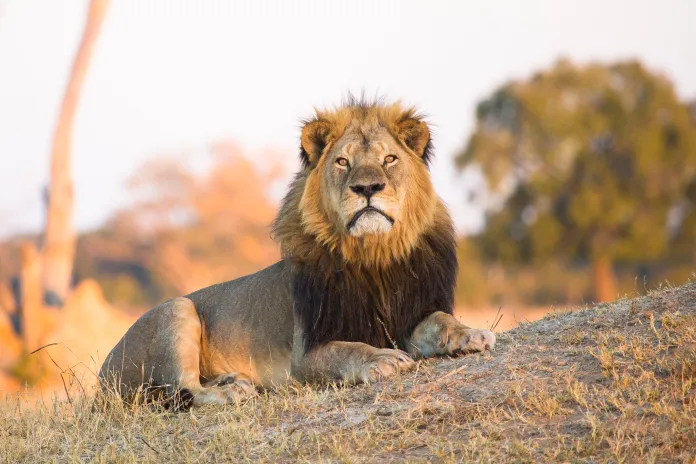The Zimbabwe Parks and Wildlife Management Authority (ZimParks) has initiated an urgent investigation following the discovery of three beheaded lions in Hwange National Park. This alarming incident, which involved the severed heads and feet of the majestic animals, has reignited concerns about the ongoing battle against poaching in Zimbabwe.
ZimParks spokesperson Tinashe Farawo reported that the poachers employed a heavy caliber rifle, indicating a high level of sophistication in their approach. “We are investigating a suspected case of lion poaching in Hwange. The suspects used a heavy caliber rifle before they chopped the heads and feet of the lions,” Farawo stated, emphasizing the seriousness of the crime.
Hwange National Park, renowned for its diverse wildlife, has been a focal point for conservation efforts in Zimbabwe. While ZimParks has made strides in reducing poaching incidents, this recent occurrence highlights the persistent challenges facing wildlife conservation in the region. The authorities have allocated a substantial anti-poaching budget of US$5 million, which has yielded some success, particularly in the Hwange-Matetsi block—an area celebrated for its rich biodiversity.
Despite these investments, poaching remains a significant threat. Reports indicate that since 2019, Zimbabwe has faced losses estimated at nearly US$8 million due to poaching activities. Over 420 Big Five animals, including elephants, rhinoceros, lions, and buffalo, have been brutally killed by poachers. ZimParks’ latest statistics reveal that a total of 422 animals valued at approximately US$7,786,000 have been lost over the past five years, a grim reminder of the urgent need for enhanced conservation measures.
The recent poaching incident also raises questions about the enforcement of wildlife protection laws. Despite ongoing efforts by ZimParks and various conservation organizations, the lure of illegal wildlife trade continues to attract poachers. The use of advanced weaponry, as evidenced in the beheading of the lions, suggests that poachers are becoming increasingly organized and equipped, posing a formidable challenge to wildlife authorities.
ZimParks has acknowledged the complexities of the poaching crisis, noting that it is not merely a law enforcement issue but a multifaceted problem influenced by socio-economic factors. Many communities living near wildlife reserves depend on poaching for their livelihoods, which complicates conservation efforts. To combat this, ZimParks is working on community engagement initiatives aimed at providing alternative income sources and raising awareness about the importance of protecting wildlife.
The investigation into the beheaded lions serves as a critical reminder of the ongoing threats facing Zimbabwe’s wildlife. As authorities work diligently to identify and apprehend those responsible, the incident highlights the need for continued vigilance and innovative approaches to wildlife conservation. Collaborative efforts between government agencies, local communities, and international partners will be essential to combat poaching effectively and ensure the survival of vulnerable species.
Public awareness campaigns play a crucial role in this fight against poaching. Increasing awareness about the importance of biodiversity and the ecological role of predators like lions can help foster a culture of conservation. Engaging the public through educational programs can create a sense of stewardship and responsibility toward protecting Zimbabwe’s natural heritage.
In conclusion, the beheading of three lions in Hwange National Park underscores the persistent threat of poaching in Zimbabwe. While ZimParks continues to allocate resources to combat this issue, the incident serves as a sobering reminder of the challenges that lie ahead. The need for a comprehensive and multifaceted approach to wildlife conservation has never been more urgent. As the investigation unfolds, the hope remains that justice will be served, and measures will be implemented to prevent such atrocities in the future, safeguarding Zimbabwe’s precious wildlife for generations to come.
In other news – Freeman speaks out after security assaults a fan during performance
Musician Freeman HKD has addressed the intense backlash following a shocking incident that occurred during his recent performance. A video circulating on social media showed security personnel brutally assaulting one of Freeman’s fans who jumped onto the stage, sparking outrage among fans and observers alike. The incident has raised questions about concert security and the treatment of fans at live events.
The altercation took place over the weekend during Freeman’s performance of his hit song “Vakomana veDrip.” In the viral video, a visibly excited fan attempted to hug Freeman while on stage. Read More
